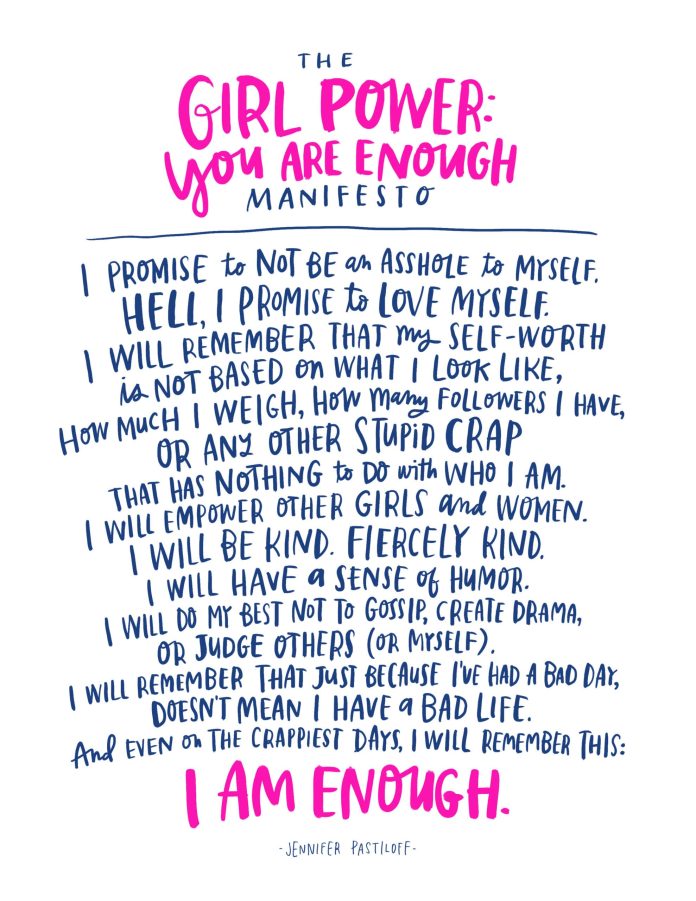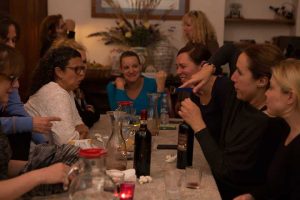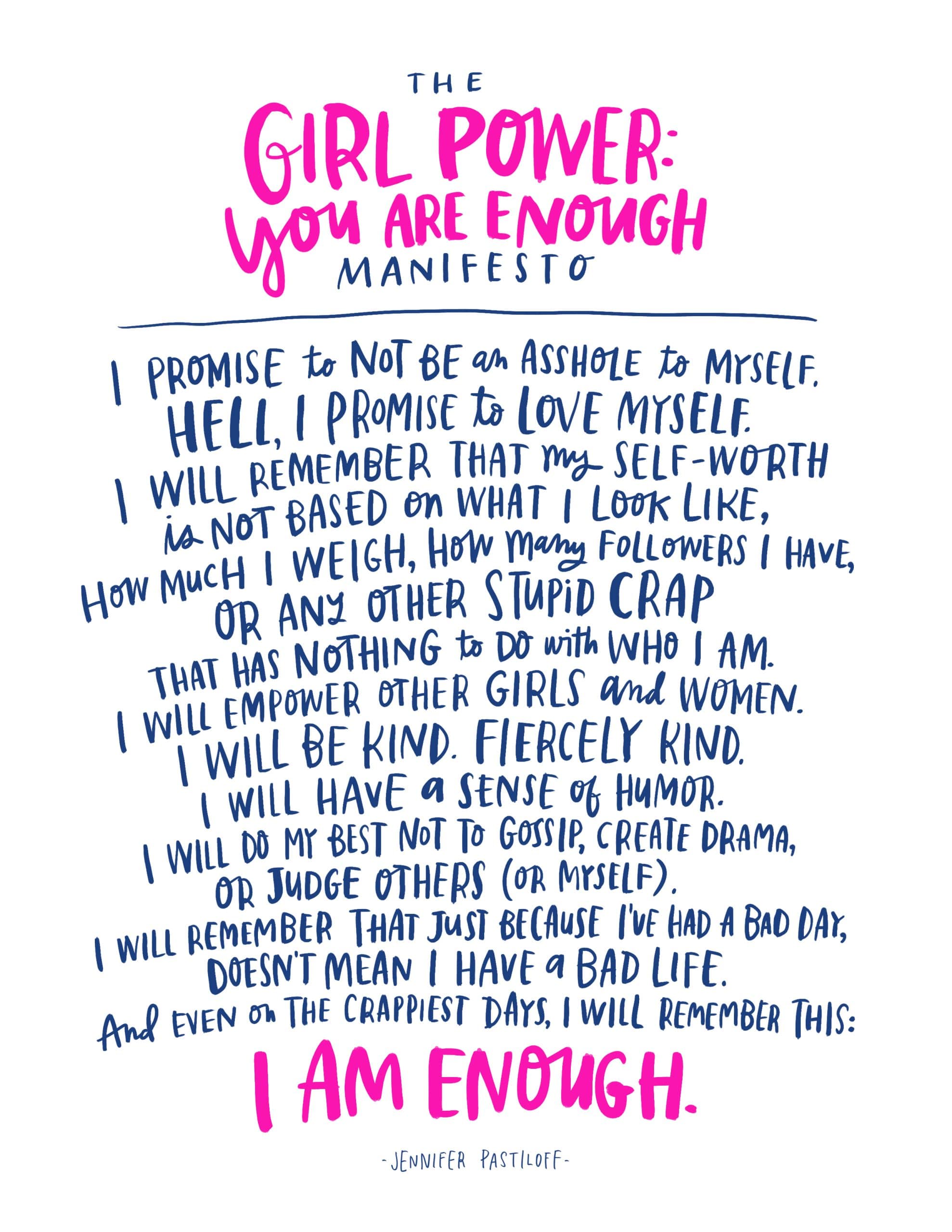
By Courtney Cook.
When I think about being raped, I think of mosquitos. I think of the sound of a buzzing street lamp. I think of sweat, of sand, of silence. And I think of the women on the tennis court nearby, blissfully unaware of my presence a mere fifty feet away.
There are no bicyclists in my story; there is just me, a girl barely 15, and him, not much older. I am so grateful there are heroes in your story. You never deserved what happened to you, but you did deserve all the kindness in the world that those men gave to you in your most vulnerable moment. I wish they’d never had to extend such kindness, but if something so horrific had to happen, I am glad good men found you. I am so thankful for all of the good men.
Two weeks before I was raped, my future rapist was pulling me away from a party. It was Halloween; I was dressed as a sailor. I can’t remember what he was dressed up as, but I can tell you the way his arms felt wrapped around my wrists as he drug me away from the party.
“We’re just going for a walk.” He’d said. Despite my protests and pulling my body weight back towards the party he’d managed to get me from the backyard, around the side of the house, all the way to the sidewalk alongside the busy street the house was located on. I pleaded to go back but his grip answered me when it became tighter. Then, “stop struggling, cars are going to think I’m raping you.”
He’d signaled to the busy road to my left before pulling me into the neighbor’s bushes. I managed to get away right as he was slipping his hand under my skirt.
I think about that statement now; how aware he’d seemed of what he was about to do. The nonchalance in his voice and the way he downplayed his future actions. “Cars are going to think I’m raping you.” Think.
In retrospect, it was a warning. I think inside him, somewhere deeply hidden, he understood that the sheer effort I was putting in to getting away from him wasn’t normal. Whatever inside him told him to use the word rape was also telling him this isn’t okay. And yet—
It would be a better story if that was where it ended, but it wouldn’t be my story. In my story the boy texted me he was sorry. He asked me to go to the beach. He told me he wanted to make it up to me. And I believed him.
I was dropped off at a restaurant a few blocks from the beach. He told me I looked pretty and I blushed. We walked to the beach on a cobblestone road. When we got there, the sun was setting. The sky was like cotton candy and the world felt sweet. We sat on a bench overlooking the sun ease into Lake Michigan and he took my legs and placed them on his, putting his arm around me. It felt picturesque and beautiful and I thought an older boy likes me and I am lucky.
When he took me to a playground by the tennis courts we kissed at the top of a slide. There were women playing tennis fifty feet away under fluorescent lights that illuminated the playground just enough so we could see each other. When he slid his hand in my pants I took his wrist and removed it and told him I didn’t want him to touch me like that. He did it again, and once again I said no, like a broken record.
He asked me why. I didn’t have an answer and he was looking for a specific reason. “Because” didn’t suffice. In his mind, there had to be more. “I don’t want to” wasn’t an answer he’d accept.
Then it happened. I listened to the hum of the streetlight and the mosquitos buzzing beneath it. I watched the women play tennis and laugh and prayed they’d see me. I wondered if they’d been touched before and if they liked it. I thought about why I’d agreed to meet him again, why I hadn’t known he didn’t know what the word ‘no’ meant or if he did he ignored its meaning. I stood there until he decided he was done
It took me two years and a hospitalization for being suicidal before I could understand that I had been raped. There were hundreds of excuses I told myself to downplay what happened to me. I told myself rape only happens in dark alleys at night with strangers, not with a boy you’ve known from summer camp since you were nine who you agreed to meet at the beach. I told myself rape is only rape when there is a penis put inside of you. I told myself a lot of things because what was even scarier than the rape itself was admitting that I’d been raped.
A few weeks before Brock Turner’s court case and your passionate letter addressed to him started spreading like wildfire, I went to a party in Manhattan. I only knew the host of the party, but I was willing to go and mingle and make new friends. After a few drinks a guy I’d been talking to went downstairs to smoke and I followed—when you don’t know anyone at a party you tend to stick to any person who talks to you.
Downstairs, he put me on his back for a piggyback ride because my feet were aching from my heels. Instead of standing outside the building so he could finish his cigarette like I’d thought, he ran across the street into Central Park, and then kept running. It was dark and I couldn’t hear the cars passing any more. He dropped me off his back and back on my feet.
“You are pathetic,” he told me. “So used up.”
The happy demeanor he had in the party changed to anger. I tried to walk past but he held me back by my upper arms. I tried to reason with him, tried to not let my voice shake, tried to not let him know how afraid I was. I took off my shoes casually as I tried to calm him down so I could run when I found the chance.
It took me three tries to run around him before I was quick enough to get away. He ran behind me and my mind was racing with images of the beach, those buzzing mosquitos, that tennis court—I swear I could almost hear the hum of that street lamp. I was no longer in Central Park; I was back at that beach. I was no longer 20; I was 15 again.
When I hailed a cab, he told me to get home safe through gritted teeth. The second the door to the cab closed, I began to bawl. When I woke up the next morning, my feet were covered in dirt from running, and I had a bruise on my upper arm from where he’d been holding me. I didn’t feel safe until the bruise was fully gone five days later. I couldn’t stop thinking about what would’ve happened had I not been able to get away.
I want to believe that the boy wouldn’t have done anything to me if I hadn’t gotten away, but I know otherwise. A boy taught me that at fifteen, and hearing about men like Brock Turner only confirms that suspicion. I want to believe that if something truly bad had happened, if I had been raped again, that the police wouldn’t have asked me if I had been drinking. That no one would have inquired about what I was wearing, and that the boys obvious wealth wouldn’t have impacted the way they treated him. I want to, but I can’t.
What I can believe in is strength, and understanding, and the power of the written word. You, the Stanford Survivor, have given me hope. You have joined a club one in four women are apart of—one I hope never grows. But in doing so, you have put on paper words I have wanted to say for so long, words that I think many of us have wanted to say for so long. While the horrors we’ve experienced may differ, we share the labels of both victim and survivor. And though I wouldn’t wish those labels on anyone, I am grateful we have someone so eloquent, articulate, and strong to speak about the pain of our experiences.
By being so brave, you have validated us. You have made us heard. You have brought this petrifying war to the spotlight. You have made me strong enough to look back at my former self who didn’t believe her rape was “true rape” because it wasn’t this and it wasn’t that, and know that it was just as valid as it was horrifying.
I was not strong enough to persecute my rapist. I have never told him the pain he caused me, spoke about the nights I hurt myself because I felt I deserved what happened to me, or said to him that his actions made me want to end my own life. I do not think he knows he is a rapist at all. But your letter did what I felt was impossible. You showed me unfathomable courage and in doing so, gave me my own.
At the beginning of this letter I told you I was sorry for what happened to you, and I want to reiterate that again. I have been through the pain you have been through, and my heart hurts for anyone else that has had to experience it as well. But what I really want to say to you more than that I am sorry, is that I am proud. I may not know you, and odds are that I will never know you, but I do know that you are strong, and brave, and courageous, and that I am thankful for your existence. And I am so, so proud of you—not just for your letter, or standing trial, or being the voice for victims everywhere—but for simply surviving. Because sometimes, that is the hardest thing of all.
Sincerely,
Courtney
Courtney Cook is a junior at the University of Michigan studying creative writing and art and design. She is an avid feminist, pop culture nerd, and aspiring greeting card designer. You can find her work in Lash, Make It Better, Soapbox, S/tick, Crashtest, Thought Catalog, and Her Campus. When she isn’t writing, Courtney is planning events for the feminist sorority she is president of, and trying to save the world. She tweets at @c00kc0.


You just need to be a human being with an open heart and a sense of humor. That’s it! Leave a deposit by clicking the image and email ba*****@***************ff.com to confirm which room you want. All based on double/triple occupancy. More info here https://www.themanifeststation.net/event/girl-power-you-are-enough-vermont-with-jen-pastiloff-lara-heimann/.